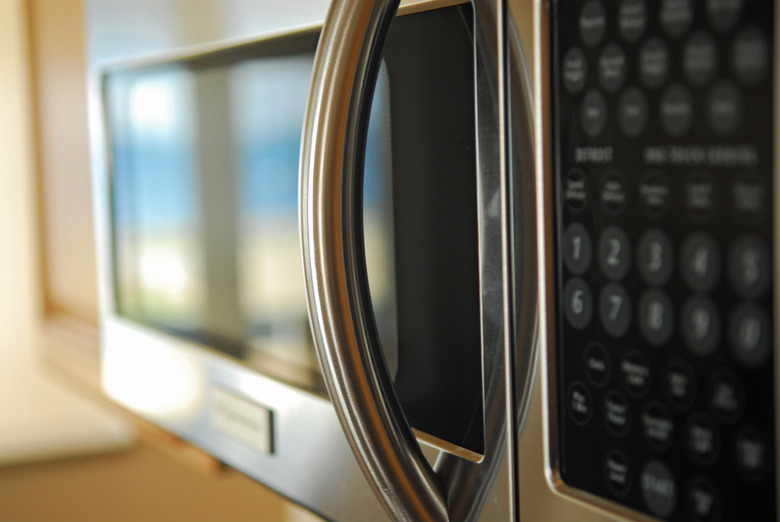What Causes A Microwave Oven's Fuses To Blow?
Microwaves occasionally stop working, like any appliance, and when they do you have a call to make: Should you replace it or attempt a repair? Paying for a professional microwave repair often costs more than a new unit, but basic troubleshooting is well within the reach of any moderately handy person. If your microwave has blown a fuse, for example, a few minutes of troubleshooting may reveal a problem you can easily repair yourself.
First, Check for External Problems
First, Check for External Problems
It's relatively rare, but your fuse may have blown because of an external issue like a power surge or a faulty wall outlet. Check your breaker panel, and if the breaker controlling your microwave is tripped, reset it. This isn't conclusive; it could be that your Frigidaire microwave keeps tripping the breaker or a surge may have tripped both, but it's an essential preliminary step.
Next, check your wall outlet or your power bar if the microwave is plugged into one. If either shows signs of scorching or if the microwave's plug is scorched where it plugs into the outlet, those are danger signs. Replace the power bar or have an electrician inspect and replace the outlet, whichever is appropriate.
Test the Door Interlock Switch
Test the Door Interlock Switch
The latch that holds your door closed includes a switch, sometimes called the door interlock. It does wear out over time because you activate it every time you open or close the microwave. A faulty interlock switch is often the culprit if you're blowing fuses regularly. If the microwave fuse blew because you opened the door while it was running, that's a "smoking gun." Otherwise, you'll need to test the switch.
First, unplug the microwave. Remove the cover from the microwave and locate the door switch, which will be right below the spot where the door's hooks latch into the frame. Turn your meter to its continuity setting and touch the probes to the switch's terminals. You should have continuity when you press down on the actuator button, but no continuity when you release it. If that's not the case, replace the switch.
Test the Magnetron
Test the Magnetron
Another component that will blow fuses (and other components) if it's failing is the magnetron, which is the part that generates the actual microwaves that cook your food. Before you test it, you'll need to unplug the microwave, remove its cover and discharge the capacitor, which stores potentially lethal amounts of electricity, according to Authorized Service Appliance Repair. Next, disconnect the wires from the magnetron's terminals.
Once you've completed those preliminaries, set your multimeter for ohms/resistance and touch its probes to the terminals. You should see 2 to 3 ohms' resistance. If not, the magnetron is faulty. Next, touch one probe to the microwave's chassis and the other to each terminal in turn. If there's continuity between the magnetron and the chassis, it's faulty.
Microwave Repair vs. Replacement
Microwave Repair vs. Replacement
If these tests don't resolve your problem, there is likely a short circuit in one of the other components within your microwave. Those are more complicated for a layperson to sort out without calling in a professional. Also, if the fault is with your magnetron, it may have damaged other components when it blew the fuse. Replacing a magnetron is fairly advanced for a home do-it-yourself task.
If you aren't able to identify the problem or if you feel the repair is more than you're willing to take on, you'll need to think seriously about the relative costs of repair and replacement. With low-cost microwaves, your repair bill will likely be higher than the cost of a new unit. With higher-end models, it's not quite so clear-cut. You'll have to weigh not just the relative costs of repair and replacement, but the value of getting a brand-new warranty with the replacement unit. Your budget and your personal preferences will usually be deciding factors.
